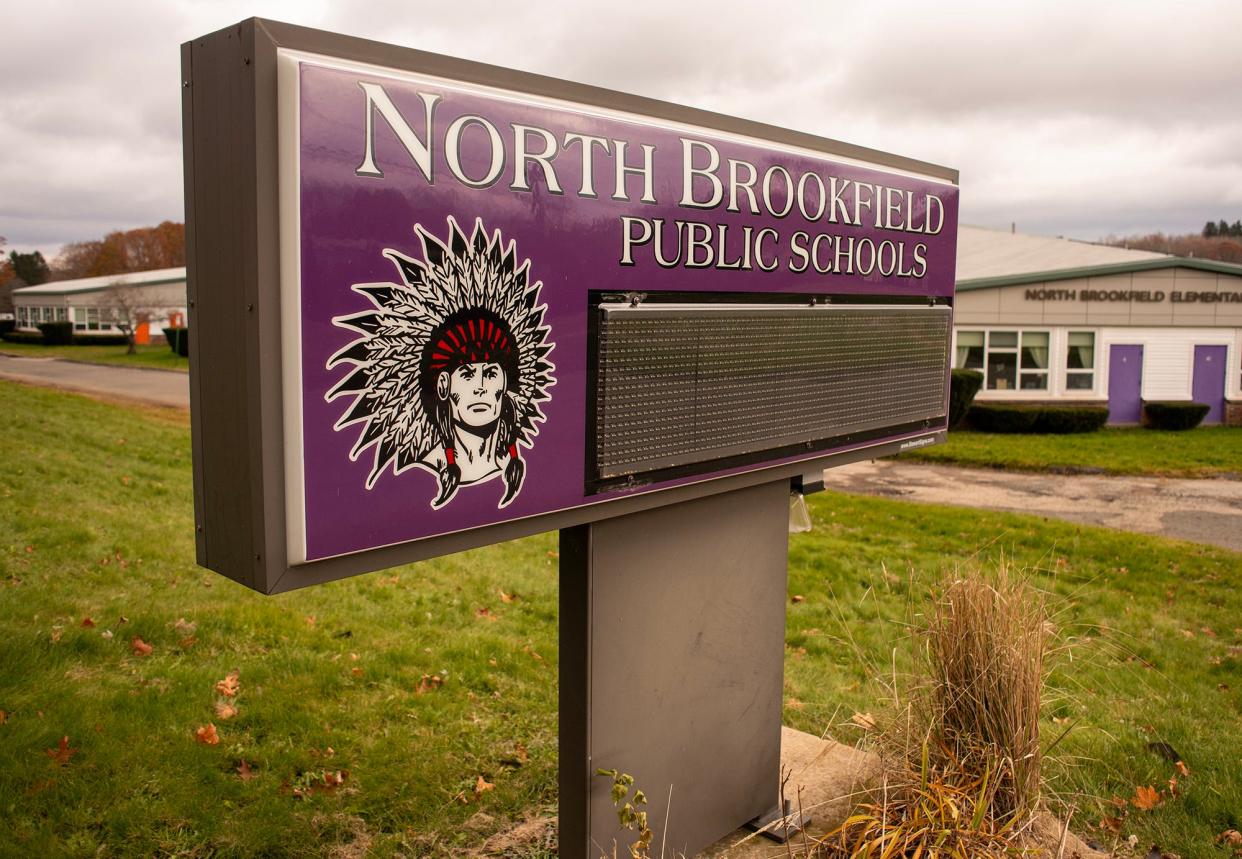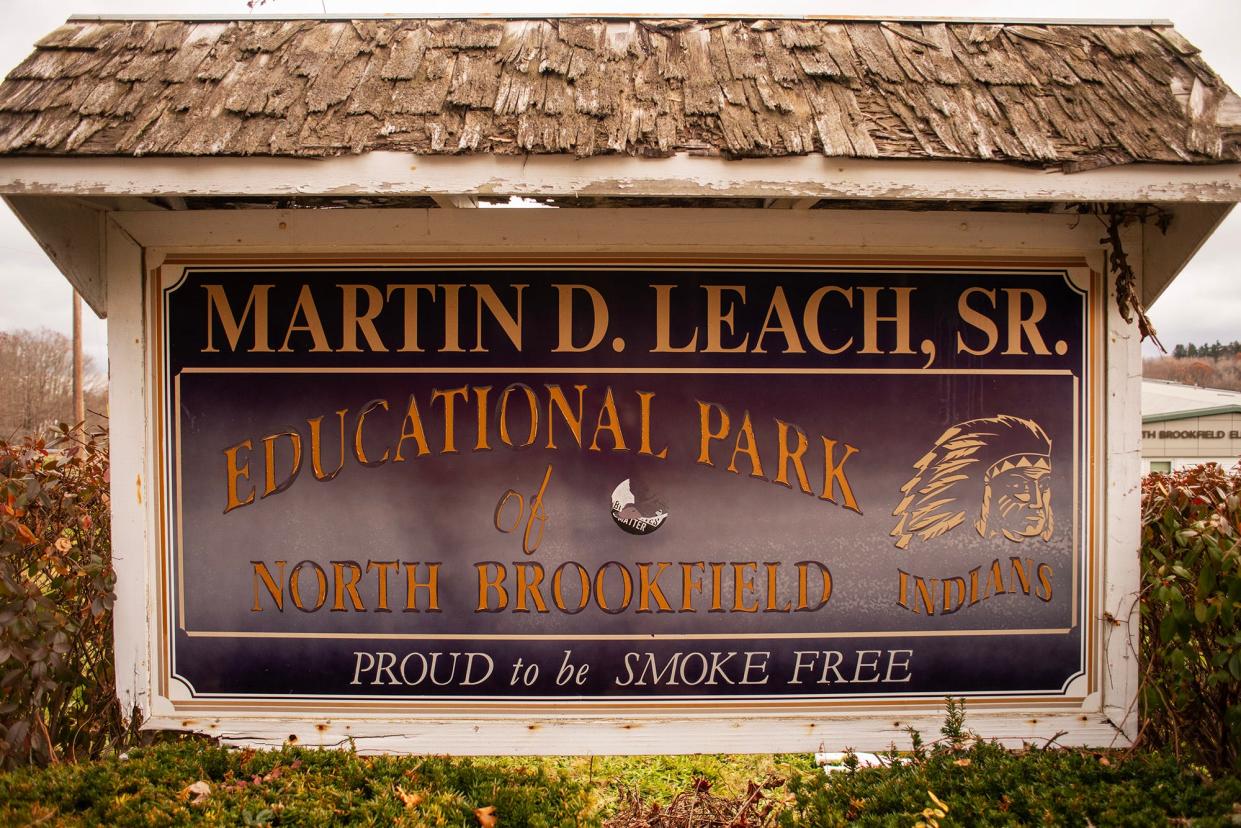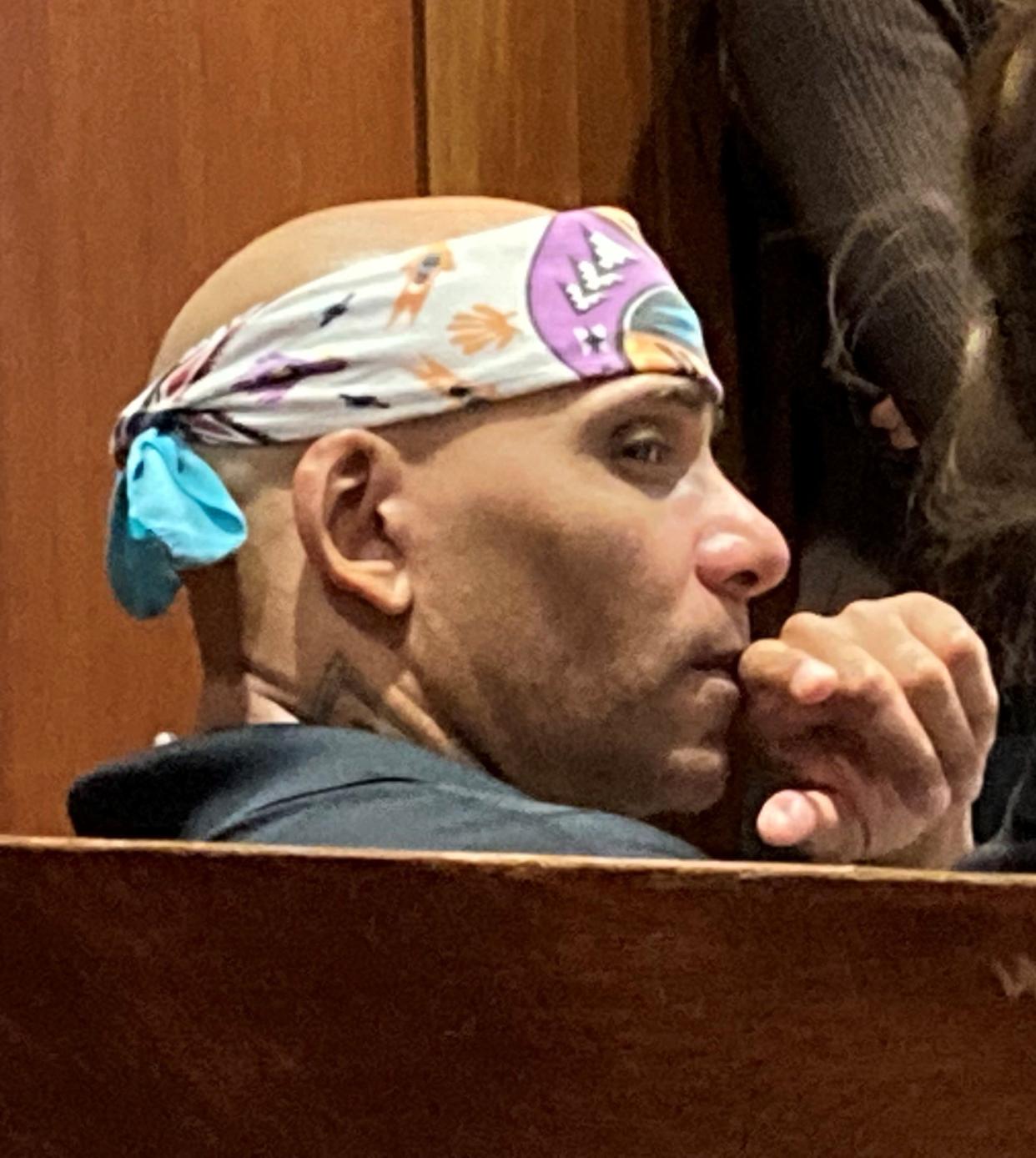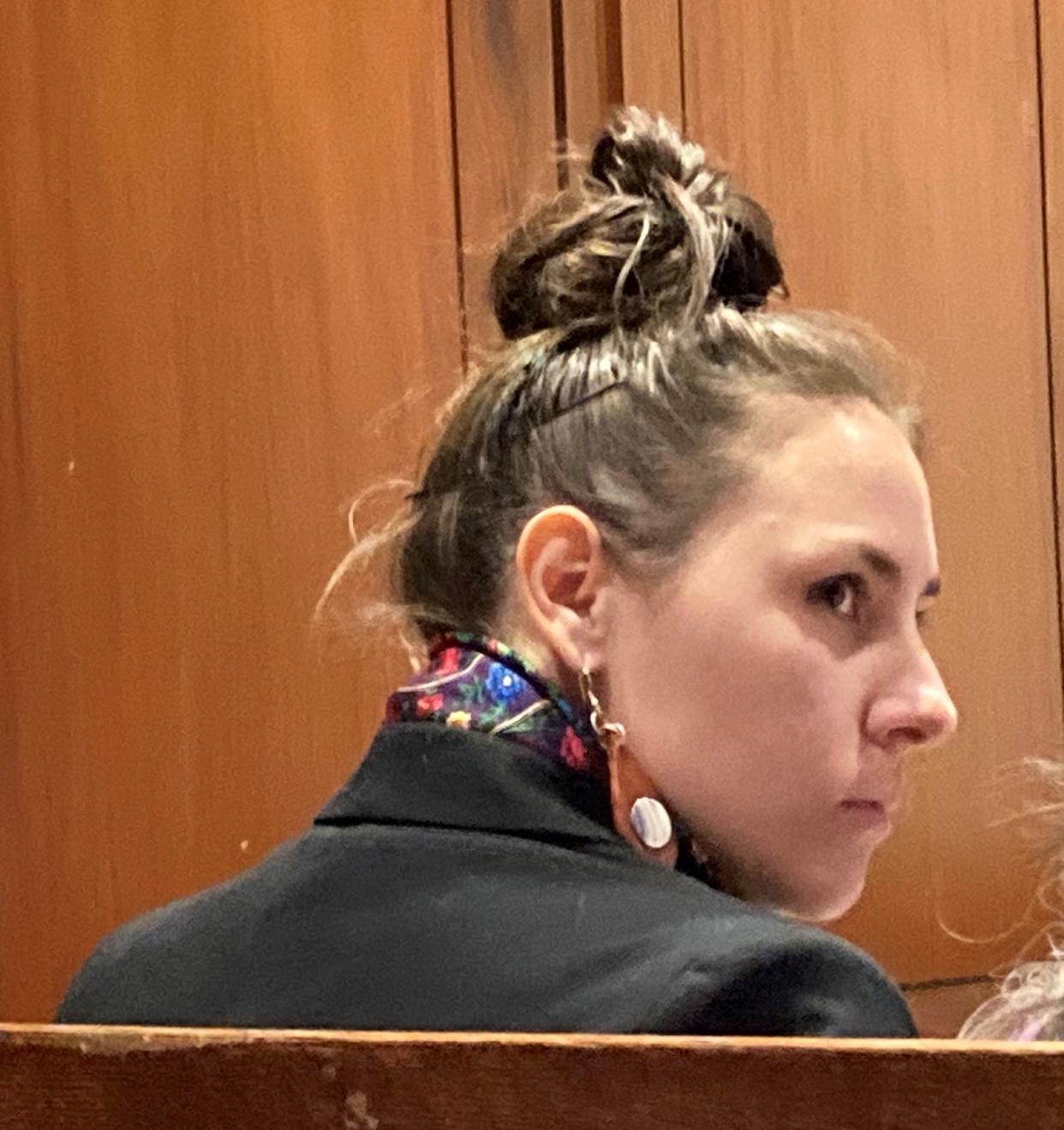Mass. lawmakers look at banning all Native American mascots in public schools

It was a quick turnaround for the North Brookfield High School: Just months after the local School Committee voted in December 2020 to change the school mascot from Indians to Bobcats, community members voted to change it back.
Now, state lawmakers are contemplating a proposal that would bar Massachusetts public schools from using an athletic team name, logo or mascot that names, refers to, represents or is associated with Native Americans, including aspects of Native American cultures, specific Native American tribes or that denigrates any racial ethnic gender or religious group.
Passage of the measure, put forth by Rep. Brandy Fluker-Oakley, D-Boston, and Sen. Jo Comerford, D-Northampton, would take the decision out of local hands.
“This is the third or fourth time the state has attempted to pass this,” said Tim McCormick, interim superintendent of North Brookfield Schools, adding that the swift back-and-forth name changes came about before his time as superintendent.
The School Committee voted to change the name in December 2020, after research and testimony that supported the decision. However, a non-binding referendum in May 2021 saw community members vote to adopt the "American Indian Chief" as the community mascot. A newly elected School Committee reversed the previous board's decision the following October and reinstated the Indian mascot for the school.

“It’s good to have the state weigh in on this,” McCormick said.
North Brookfield is one of several Central Massachusetts school districts whose teams have nicknames with Native American themes, including Bartlett High School (Indians), Narragansett Regional High School (Warriors), Nipmuc Regional High School (Warriors) and Tantasqua Regional High School (Warriors).
Superintendents in those districts did not immediately return calls seeking comment about the latest legislation.
The bill was heard Monday by the Joint Committee on Education, whose members heard testimony from a myriad of Massachusetts residents, some of them members of Native American nations.

Faries Gray, a member of the Massachusett Tribe, decried the idea that the schools are affording native tribes an “honor” through the use of their names, images or symbols. The icons and images do not educate or inform others of native culture and history, he said.
“That doesn’t honor us,” Gray said. “It makes us into caricatures of ourselves, as if all we are is a warrior nation, not poets, philosophers, people with culture and families.”
Gray went to Shawnee High School in Medford, New Jersey, a school with a Native American-themed mascot, the Renegades.
Attending sporting events was challenging for Faries, when classmates were whooping and hollering, “as if they were speaking our language."
"It makes people feel unworthy. I just wanted to hide,” Faries said. “We are still a living people; we are still here.”
In supporting her bill, Comerford noted that the New York State Board of Regents voted earlier this year to ban public school districts from using Native American imagery, icons and names as mascots.
“It’s time for the commonwealth to do the same and safeguard the civil rights of all its residents,” Comerford said.

Tomantha Sylvester, of the Ojibwe tribe, started her testimony speaking in her native language, but continued in English, testifying that the cultural appropriation and use of native imagery, names and icons dehumanizes people, destroying what it means to be native.
“Those who cling to the mascots don’t understand the consequences, the negative impacts of their use; they don’t understand the consequences of white privilege,” Sylvester said.
Traci Griffith of the American Civil Liberties Union said that when cultural icons are used as entertainment, it establishes a relationship of dominance and subordination.
“While it harms Native Americans, it also harms society at large,” Griffith said, explaining that it is a civil rights issue, perpetrating negative stereotypes that are culturally insensitive to the 90,000 Native Americans living in Massachusetts.
Linda Thomas, of Tewksbury, applauded the Legislature for tackling the problem at a state level.
“It’s impossible to change mascots at a local level,” Thomas said, enumerating the times it has been attempted in her community, where high school sports teams are known as the Redmen.
“This is not just an internal school committee, district issue,” Thomas said, pointing out that sports teams travel, team names are discussed widely across regions and are publicized in traditional and social media.
Massachusetts tribes have endorsed the bill, as has the Massachusetts Association of School Committees.
This article originally appeared on Telegram & Gazette: Mass. lawmakers may ban Native American mascots in public schools
